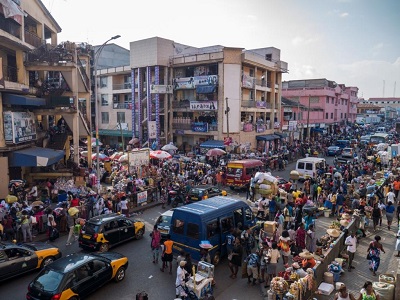Ghanaians Express Economic Optimism as Majority Expect Prices to Fall – Global InfoAnalytics Survey
A new national poll conducted by research firm Global InfoAnalytics has revealed growing optimism among Ghanaians about the country’s economic outlook, with a majority of respondents anticipating a fall in the prices of goods and services over the next six months.
According to the findings of the survey, 55% of voters believe prices will decline within the period, indicating renewed confidence in Ghana’s macroeconomic trajectory. In contrast, only 19% of respondents expect prices to rise, while the remaining respondents either foresee no change or were undecided.
The survey was conducted online between May 10 and May 20, 2025, using probability random sampling methods. It polled 1,092 respondents and has a margin of error of ±3.82% at a 99% confidence level.
Commenting on the results, Pollster and Head of Research at Global InfoAnalytics, Mussa K. Dankwah, noted that the findings signal “a strong sense of economic confidence” among the Ghanaian public.
The report further revealed that 72% of respondents expect their standard of living to improve over the next 12 months, compared to just 16% who anticipate a decline in living conditions.
This wave of optimism coincides with recent macroeconomic gains. The Ghanaian cedi has recorded notable appreciation against major trading currencies in 2025, ranking among the best-performing currencies globally. The strengthening of the local currency has helped ease the cost of imports, a key driver of inflation in the domestic market.
Ghana’s inflation rate has also continued its downward trend, falling to 18.4% in May 2025 — the lowest inflation print since February 2022. The reduction in inflation has been credited with boosting household purchasing power and improving overall economic sentiment.
International economic observers, including FocusEconomics and the African Development Bank (AfDB), have forecast further disinflation throughout 2025, with some analysts projecting a return to single-digit inflation by 2026.
The improved inflation outlook has been underpinned by ongoing fiscal consolidation efforts under Ghana’s International Monetary Fund (IMF) programme. Increased foreign exchange reserves, buoyed by strong gold and cocoa export performance, have also contributed to exchange rate stability.
In addition to macro-level interventions, the government has sought to mitigate the impact of the cost of living on vulnerable groups. Notably, the recent upward adjustment of the Livelihood Empowerment Against Poverty (LEAP) grant is expected to provide relief to low-income households facing inflationary pressures.
The findings from the Global InfoAnalytics survey suggest that the Ghanaian public is responding positively to these economic developments, with growing expectations of sustained stability in prices and improvements in living standards.








